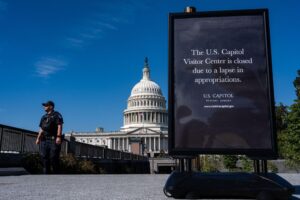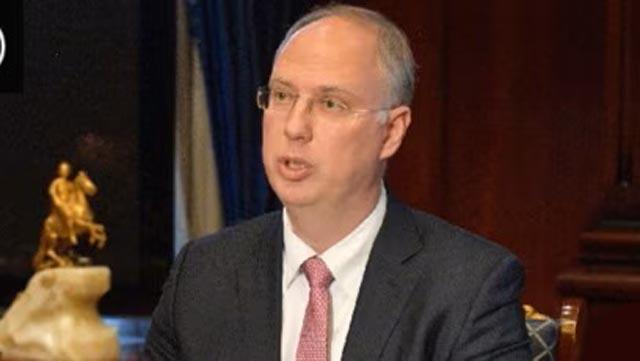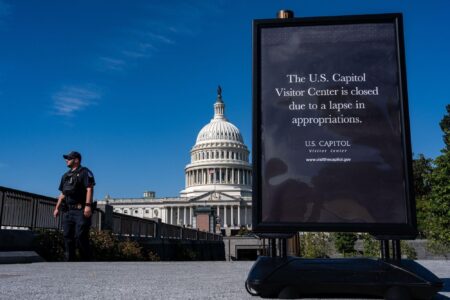High-Level Russian Delegation Visits Washington Amid Intensifying Global Strains
This week, a prominent Russian diplomat arrived in Washington, D.C., initiating a series of strategic discussions with officials from the Trump administration. This visit represents a critical juncture in the complex and often fraught relationship between the United States and Russia. Against a backdrop of mounting geopolitical friction, the talks aim to tackle pressing matters such as security collaboration, diplomatic hurdles, and economic sanctions.
The agenda is expected to cover several vital areas, including:
- Revisiting nuclear arms control frameworks – ensuring adherence and exploring treaty extensions
- Enhancing cybersecurity partnerships – developing joint protocols to deter cyber intrusions and election meddling
- Addressing regional conflicts – coordinating efforts to stabilize volatile zones like Ukraine and Syria
- Negotiating trade and sanctions – considering potential easing of economic restrictions while enforcing compliance
| Discussion Topic | Anticipated Result |
|---|---|
| Nuclear Arms Control | Possible extension of New START treaty |
| Cybersecurity | Agreed-upon cyber engagement boundaries |
| Syria Conflict | Joint ceasefire initiatives |
| Economic Sanctions | Discussions on sanction relief possibilities |
Critical Topics Focus on Arms Control and Cybersecurity Collaboration
Central to the dialogue is the urgent need to revive and strengthen arms control agreements that have weakened over recent years. A primary objective is the renewal of the New START treaty, which caps the number of deployed nuclear warheads, alongside exploring innovative frameworks to regulate emerging strategic weaponry. Both parties recognize that increased transparency and risk reduction are essential to prevent miscalculations amid shifting global security dynamics.
Cybersecurity also stands out as a pivotal subject, with both delegations agreeing on the necessity of mechanisms to avert cyberattacks that could escalate into broader conflicts. Proposed collaborative efforts include:
- Sharing intelligence on cyber threats and system vulnerabilities
- Joint initiatives to counteract interference in democratic processes
- Reinforcing international norms against state-sponsored cyber operations
| Topic | Primary Goal | Expected Benefit |
|---|---|---|
| New START Treaty Renewal | Preserve nuclear arms limitations | Mitigate nuclear arms race risks |
| Cybersecurity Partnership | Prevent escalation of cyber conflicts | Build mutual confidence |
| Threat Intelligence Sharing | Enhance detection capabilities | Accelerate cyberattack responses |
Evaluating the Visit’s Impact on US-Russia Relations and International Diplomacy
This diplomatic engagement could signal a tentative easing of tensions after years marked by suspicion and confrontation. Both nations appear willing to explore cooperation in areas such as arms control, counterterrorism, and cybersecurity. Nevertheless, entrenched mistrust and conflicting geopolitical agendas continue to pose significant obstacles, casting uncertainty over the tangible results of these talks.
Key focal points under close examination include:
- Sanctions adjustment – potential easing contingent on adherence to international standards
- Military tension reduction – confidence-building measures in Eastern European theaters
- Diplomatic reciprocity – resolving issues related to embassy operations and visa processing delays
| Aspect | Positive Effects | Ongoing Challenges |
|---|---|---|
| Diplomatic Engagement | More frequent dialogue reduces misinterpretations | Persistent espionage accusations undermine trust |
| Global Security Cooperation | Opportunities for joint counterterrorism operations | Conflicting interests in Middle Eastern affairs |
| Economic Relations | Prospects for cautious trade normalization | Sanctions continue to restrict commercial growth |
The implications of these discussions extend beyond bilateral ties, influencing diplomatic relations with other global powers. European and Asian allies are monitoring developments closely, as any rapprochement between Washington and Moscow could reshape existing security frameworks and economic alliances. This evolving dynamic may lead to a more fluid international environment where traditional partnerships are reassessed and new strategic calculations emerge.
Strategies to Strengthen Dialogue and Prevent Diplomatic Impasses
Establishing transparent and consistent communication channels is essential to overcoming stalemates and fostering trust between the two governments. Prioritizing regular, structured meetings that encourage open and honest exchanges—shielded from media sensationalism—can create a more conducive environment for progress. Incorporating neutral expert advisors can further enhance objectivity and reduce misunderstandings, facilitating pragmatic policy decisions.
To sustain momentum and avoid diplomatic deadlocks, the following approaches are recommended:
- Set clear timelines for subsequent negotiations and follow-ups.
- Focus initially on achievable, incremental goals before addressing broader geopolitical challenges.
- Utilize discreet back-channel communications to resolve sensitive issues away from public scrutiny.
- Form joint monitoring committees to track progress and recommend adaptive strategies.
| Strategic Approach | Anticipated Benefit |
|---|---|
| Regular Expert Consultations | Improved clarity and impartiality in negotiations |
| Incremental Negotiation Steps | Gradual trust-building and tension reduction |
| Back-Channel Diplomacy | Swift resolution of conflicts away from public pressure |
Conclusion
As the senior Russian envoy wraps up this consequential visit to Washington, both parties reaffirm the significance of sustained dialogue amid persistent tensions. Although no immediate breakthroughs were declared, the discussions highlight a shared commitment to addressing contentious issues through diplomatic engagement. The international community will be closely monitoring how these conversations shape the trajectory of U.S.-Russia relations in the near future.







